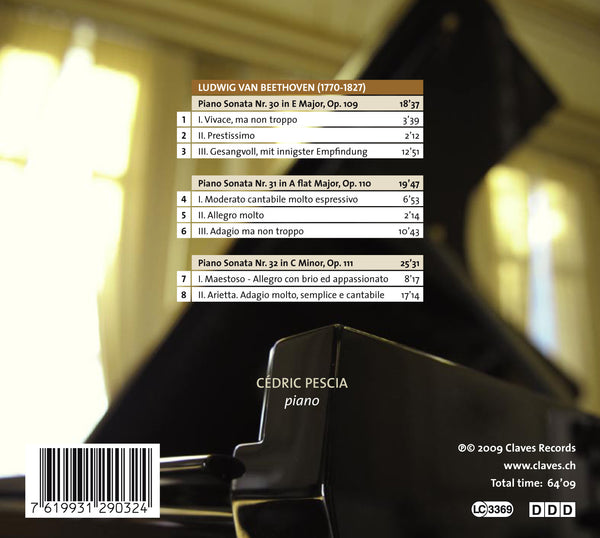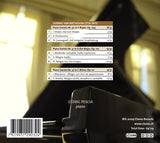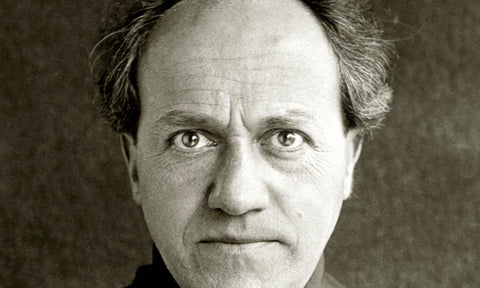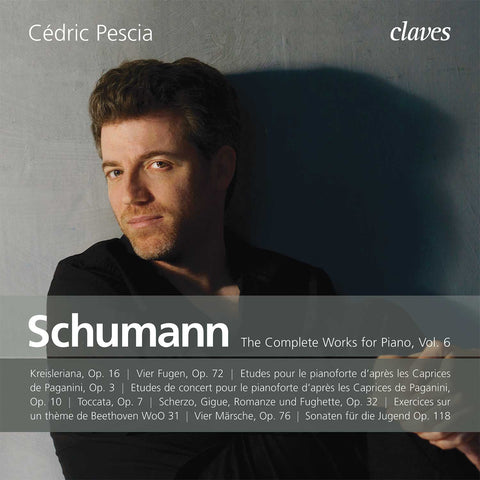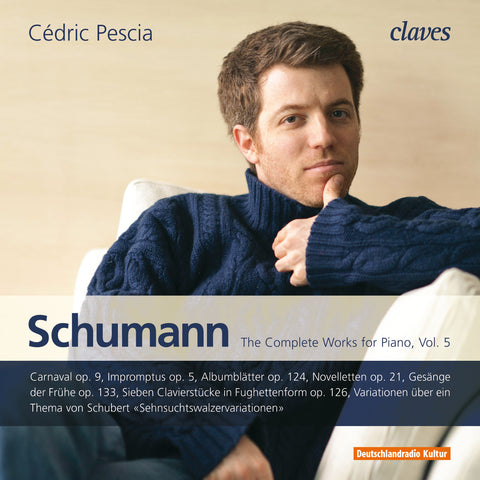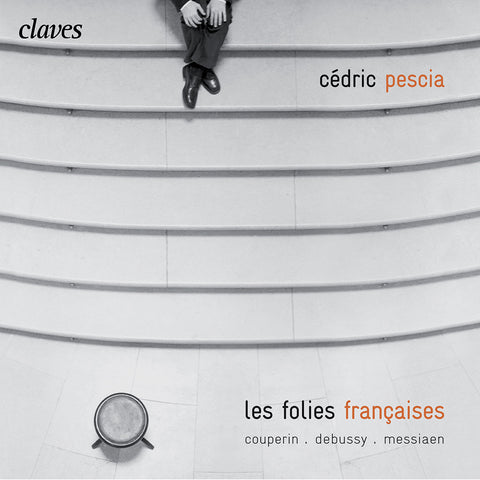(2009) Beethoven: Three Last Piano Sonatas Op. 109, 110 & 111
CD set: 1
Catalog N°:
CD 2903
Release: 12.05.2009
EAN/UPC: 7619931290324
- UPC: 884385497064
This album is now on repressing. Pre-order it at a special price now.
CHF 18.50
This album is no longer available on CD.
This album has not been released yet. Pre-order it from now.
CHF 18.50
This album is no longer available on CD.
CHF 18.50
VAT included for Switzerland & UE
Free shipping
This album is no longer available on CD.
VAT included for Switzerland & UE
Free shipping
This album is now on repressing. Pre-order it at a special price now.
CHF 18.50
This album is no longer available on CD.
This album has not been released yet.
Pre-order it at a special price now.
CHF 18.50
This album is no longer available on CD.
CHF 18.50
This album is no longer available on CD.
BEETHOVEN: THREE LAST PIANO SONATAS OP. 109, 110 & 111
Ready to tackle music of which absolutely everything has been said; music that is at the same time puzzling and full of sunny simplicity: three sonatas written between 1820 and 1822; while Beethoven was working on the Missa Solemnis; his "spiritual testament". This coexistence has raised all sorts of wild comments. Richard Wagner for instance puts forth a most unusual theory – coming from him – to explain why the final opus 111 has only two movements: "The first movement corresponds to desire in all its suffering and heroicism; the second corresponds to satisfied desire; as man will experience it once he has become reasonable; vegetarian."
Far from this; Cédric Pescia; one of the most touching pianists of his generation; gives us a heart-moving; sensitive rendition of the deepest interiority.
Similarly to the challenge of the Goldberg Variations (CD 50-2407) which marked his debut with Claves in 2004; Cédric Pescia has launched into Beethoven's last three sonatas for 2009. He has been talking about it for a long time and now he is ready.
Ready to tackle music of which absolutely everything has been said; music that is at the same time puzzling and full of sunny simplicity: three sonatas written between 1820 and 1822; while Beethoven was working on the Missa Solemnis; his "spiritual testament". This coexistence has raised all sorts of wild comments. Richard Wagner for instance puts forth a most unusual theory – coming from him – to explain why the final opus 111 has only two movements: "The first movement corresponds to desire in all its suffering and heroicism; the second corresponds to satisfied desire; as man will experience it once he has become reasonable; vegetarian."
Far from this; Cédric Pescia; one of the most touching pianists of his generation; gives us a heart-moving; sensitive rendition of the deepest interiority.
Return to the album | Read the booklet | Main Artist: Cédric Pescia


















